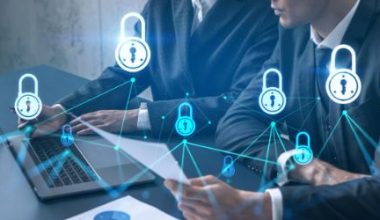Remote work has many benefits. It can help you stay motivated, provide flexibility, and allow you to work from anywhere. However, there are also security threats that come with remote work.
It’s important to be aware of the security risks that come with not being in an office. While there are many benefits to remote work, you have to do your due diligence to ensure your work environment is secure.
What can you do to prevent security risks?
Some of these threats can be mitigated with the use of antivirus software. But, you don’t have to stop there. Security is important for everyone, and you should regularly review your internet, security settings and monitor your activity.
Secure file sharing is a must as compromised networks can lead to security breaches on multiple sites. Never make files that are critical to your work, or your business, open on a shared drive.
Ensure your personal information is kept safe online by never posting confidential information about you, or your company online.
Never open attachments in emails from unknown sources. You should also never open an attachment or link from an untrusted source.
Always use strong complex passwords and avoid common passwords (1,2,3,4). Make sure these passwords are a combination of upper and lowercase letters, numbers, and symbols. Never use the same password for different accounts.
Authenticate third party security controls such as two-factor authentication (2FA). This allows you to keep your account secured from unauthorized access and also prevents stolen/borrowed accounts from having access to your sensitive information.
Business owners should always be aware of the latest security trends in the workplace, and educate employees on compliance with recommended security protocols from experts in the industry.
Common Security Threats in Remote Work Setups
Remote work security is like any other aspect of your personal security – there are always dangers. So, what can you expect to see when you’re not in the office?
Here are some of the more common threats;
Mobile Device Theft
Companies might issue physical hardware to remote employees, like laptops or mobile phones that are preconfigured with company software. However, those devices are vulnerable if they’re lost, stolen, or compromised.
When working in public places, it’s important that employees keep these devices secured, physically and online. A company laptop could easily be stolen off a coffee shop table, or just left on a bus.
Because remote employees communicate with coworkers and supervisors primarily through chat programs and email, the risk of phishing is higher. A cybercriminal could spoof a corporate email account and request confidential information from employees, such as passwords.
In a more sophisticated attack, a person could set up a website page designed to look like a company portal, like a payroll app, and email it to employees asking them to update their personal information.
Any personal information the employee entered into the fake payroll portal, such as SSN and bank account info, would be stolen.
Virtual Conference Software Exploits
As companies shifted to remote work throughout the pandemic in 2020, many relied on virtual conference software, like Zoom, Skype, and Google Meet, to stay in touch.
However, 2020 also saw a new threat in the form of “Zoombombing”, where hackers gain entry to video conferences and either disrupt the meeting, or potentially steal business data.
These virtual conference “hackers” are often internet trolls who gain access codes with a little social engineering, but access codes can also be stolen with a phishing email (“Hey Bob, I forgot the link to our company Zoom meeting this week, can you send it over?”).
Tips for Remote Work Security
Check that you are up to date with all of your software updates to prevent any vulnerabilities. To prevent malware infections, you should always keep your anti-virus software installed.
Run software updates regularly, particularly when computer files contain sensitive information that needs to be updated or patched. In some cases, updating critical software might be necessary to stay safe.
Be careful of posting what you’re doing or the information you’re sharing online, especially sensitive information that can put your system and personal data at risk.
Be careful with public WiFi. Never log into a public WiFi network if you don’t know the network password, or if the network’s username or password are not secure. If you do not have to log in, avoid the network altogether.
Use a VPN service to protect your traffic from being intercepted. This prevents you from having your activity tracked and gives you a secure connection to the internet.






